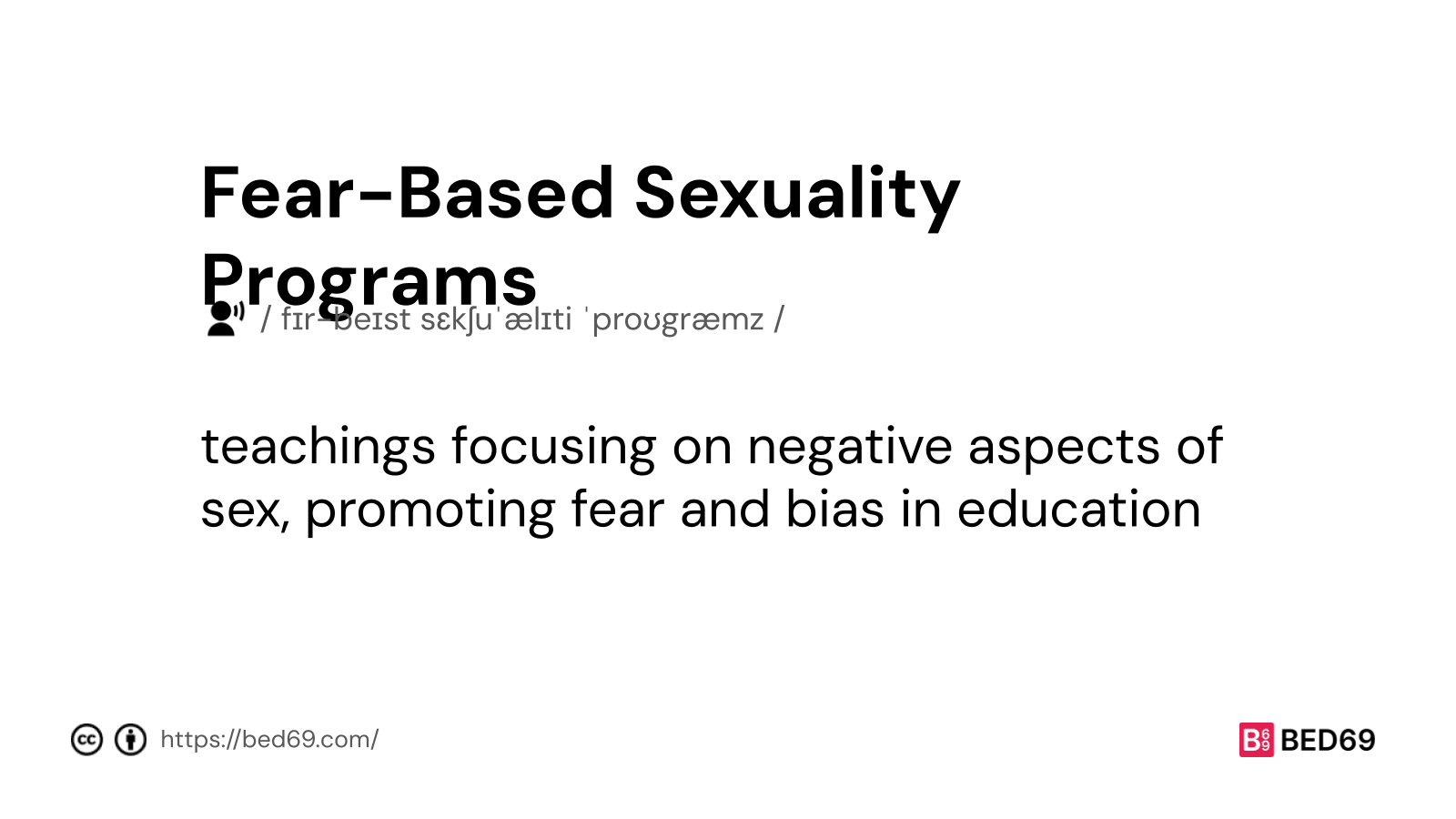What is Fear-Based Sexuality Programs?
Fear-Based Sexuality Programs are sex education teachings that emphasize the downsides of sex. They promote fear and biased views on sexual topics like orientation, gender, and family. These programs often discourage contraception and awareness of sexually transmitted diseases, pushing abstinence-only ideologies onto children.
Fear-Based Sexuality Programs pronunciation: / fɪr-beɪst sɛkʃuˈælɪti ˈproʊgræmz /

How do Fear-Based Sexuality Programs Impact Teenagers’ Understanding of Sexuality
Fear-based sexuality programs can significantly impact teenagers’ understanding of sexuality by instilling fear and bias. These programs often present a negative view of sexual topics like orientation, gender, and family, while discouraging knowledge about contraception and sexually transmitted diseases. By promoting abstinence as the only acceptable choice, they may limit teenagers’ understanding of healthy sexual relationships and safe practices.
Consequently, adolescents exposed to fear-based sexuality programs may struggle with forming informed decisions about their sexual health and relationships, leading to potential risks and misconceptions. These programs can hinder a holistic understanding of sexuality, impeding teenagers’ ability to navigate their sexual development with confidence and knowledge.
Unpacking the Psychological Effects of Fear-Based Sexuality Programs
Fear-based sexuality programs can have lasting psychological impacts on teenagers. By instilling fear and promoting negative views on sexuality, these programs can lead to feelings of shame, guilt, and confusion surrounding sexual topics. This approach may hinder healthy sexual development and create barriers to open communication about sexuality. Teenagers exposed to fear-based teachings may struggle with self-acceptance and understanding their own identities, which can affect their mental well-being.
Moreover, fear-based sexuality programs can contribute to anxiety and stress related to sexual relationships. The emphasis on abstinence-only messages without comprehensive information may lead to misconceptions and unrealistic expectations about sex. This lack of accurate knowledge can further perpetuate feelings of fear and inadequacy in teenagers, impacting their self-esteem and relationships.
Ultimately, the psychological effects of fear-based sexuality programs can hinder teenagers’ ability to make informed choices about their sexual health and well-being, impacting their overall development.
Explore other interesting terms:
